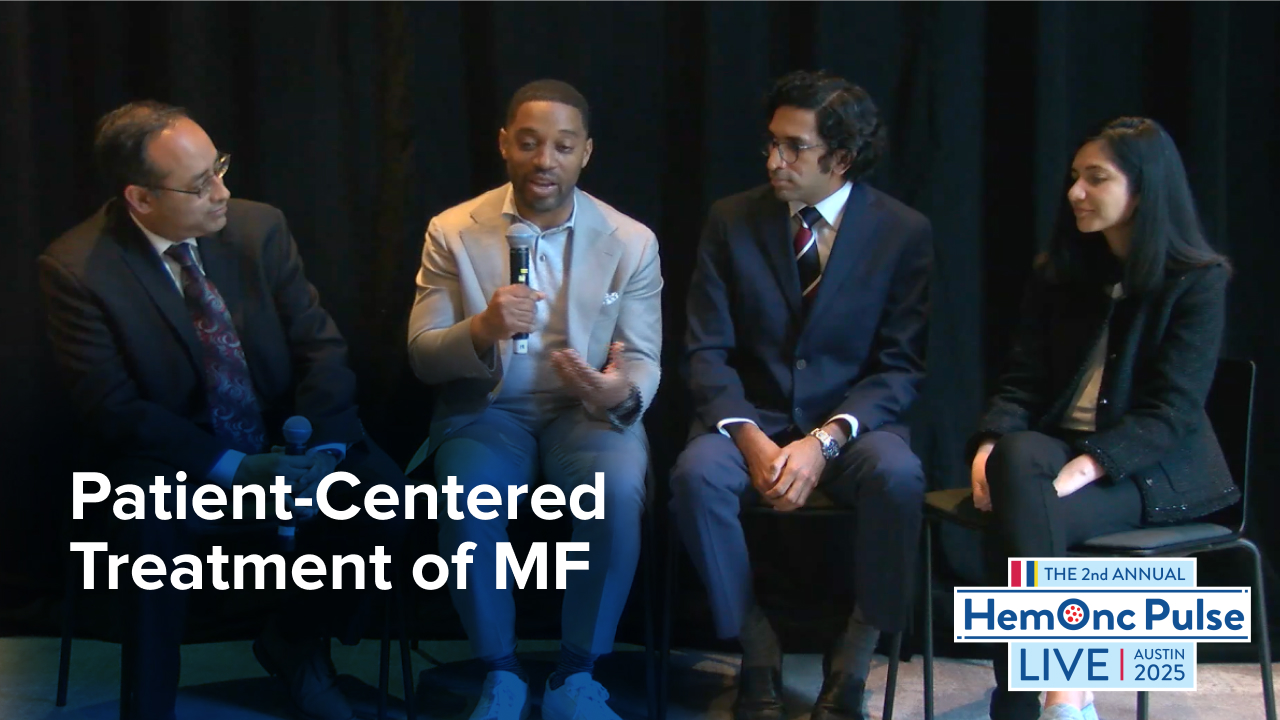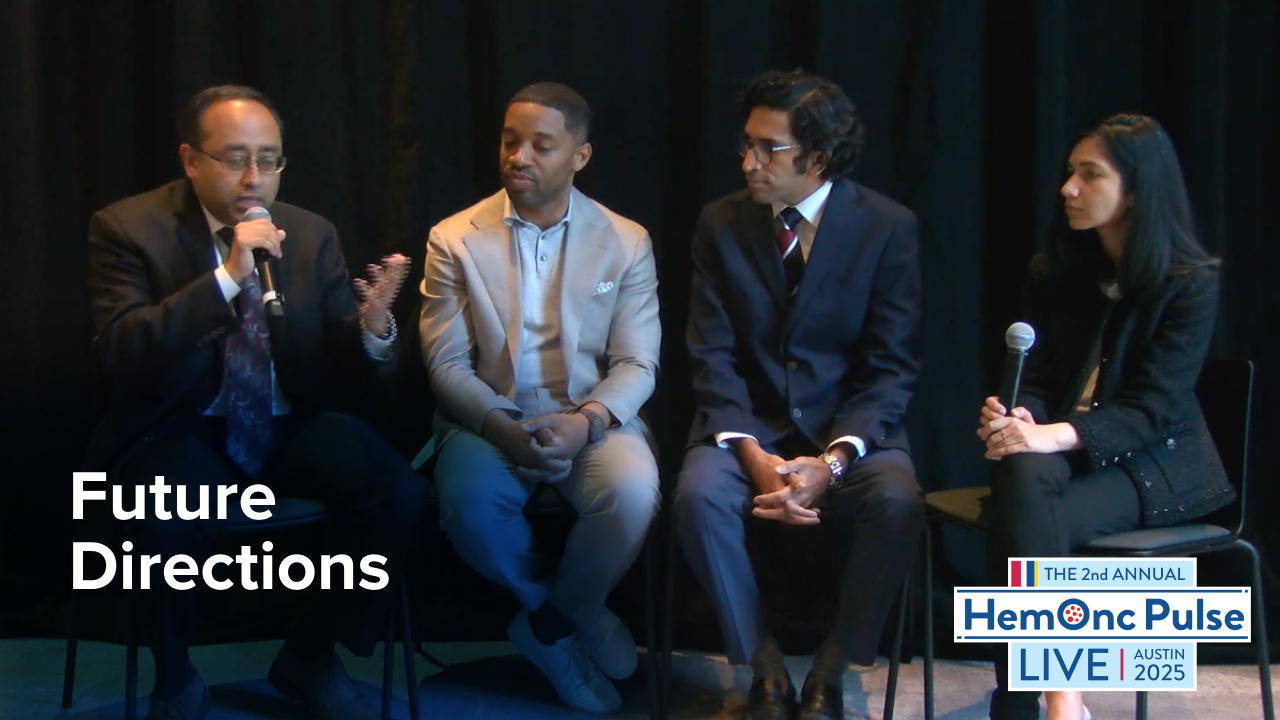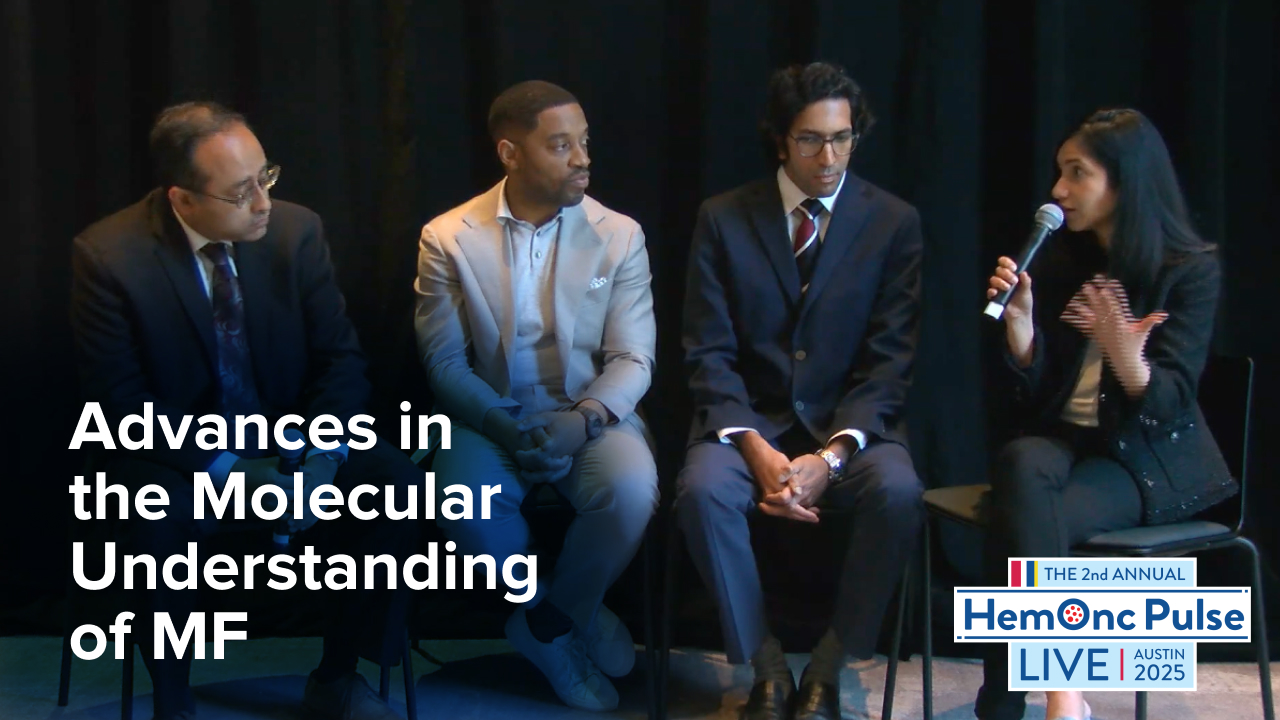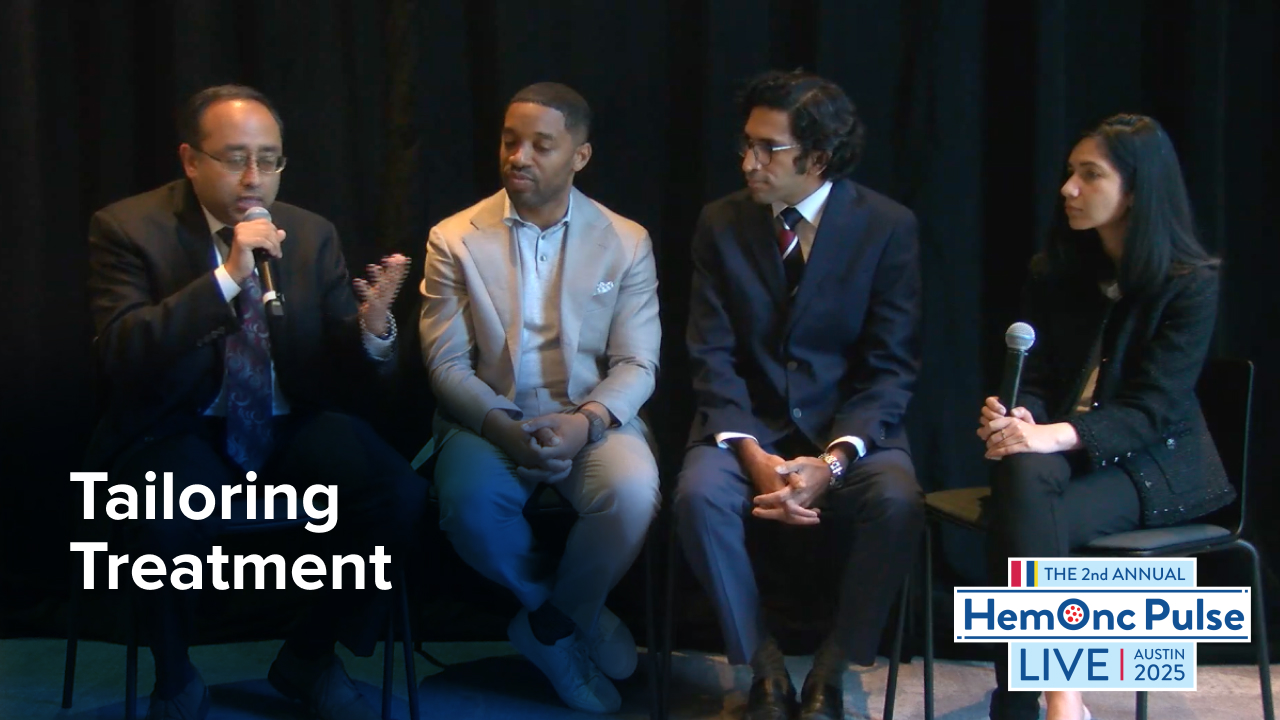
Rusfertide is “highly effective” in patients with polycythemia vera (PV) who were receiving therapeutic phlebotomies with or without cytoreductive therapy, according to investigators of the REVIVE trial.
Naveen Pemmaraju, MD, of the University of Texas MD Anderson Cancer Center and colleagues presented data from the randomized withdrawal phase of the study at the Eleventh Annual Meeting of the Society of Hematologic Oncology.
The trial consists of three stages. In part one of the study, which was the first 28 weeks, the researchers adjusted the dose of rusfertide individually to control hematocrit <45%. Part two of the study, which was weeks 29 through 41, was the blinded randomized withdrawal phase of the study. Dr. Pemmaraju and colleagues randomized 53 patients to continue receiving rusfertide treatment (n=26) or matching placebo (n=26) during part two. Part three is a three-year open-label extension.
To be eligible for the study, patients needed to receive at least three therapeutic phlebotomies with or without concurrent cytoreductive therapy in the 28 weeks prior to enrollment.
The researchers defined patients as responders in part two if they had hematocrit control without therapeutic phlebotomy eligibility, and no therapeutic phlebotomy, and completed 12 weeks of treatment. A need for therapeutic phlebotomy was triggered by hematocrit of at least 45% and at least 3% higher than week 29 prerandomization hematocrit, hematocrit above 48%, or at least a 5% increase in hematocrit compared with week 29 hematocrit.
The response rate was 69.2% for patients receiving rusfertide in part two, while it was 18.5% for those receiving placebo (P=.0003). Rusfertide showed “superior efficacy relative to placebo” patients receiving therapeutic phlebotomy alone (P=.02) and in those receiving therapeutic phlebotomy plus cytoreductive therapy (P=.02) groups, according to Dr. Pemmaraju and colleagues.
Furthermore, rusfertide significantly improved maintenance of response, absence of the need for therapeutic phlebotomy, and persistent hematocrit control compared to placebo (P<.0001). It was also “well tolerated,” as 83% of treatment-emergent adverse events (TEAEs) were grade 1 or 2 and 17% were grade 3. No TEAEs of grade 4 or 5 were reported. The most common TEAEs were localized grade 1 or grade 2 injection site reactions.
“The REVIVE study demonstrated that rusfertide is highly effective in patients with PV receiving [therapeutic phlebotomy] with or without [cytoreductive therapy.] Rusfertide is well tolerated and produces sustained and durable [hematocrit] control,” Dr. Pemmaraju and colleagues concluded.
Reference
Pemmaraju N, Kremyanskaya M, Kuykendall A, et al. Targeted therapy of uncontrolled erythrocytosis in polycythemia vera with the hepcidin mimetic, rusfertide: Blinded randomized withdrawal results of the phase 2 REVIVE study. Abstract MPN-541. Presented at the Eleventh Annual Meeting of the Society of Hematologic Oncology; September 6-9, 2023; Houston, Texas.






 © 2025 Mashup Media, LLC, a Formedics Property. All Rights Reserved.
© 2025 Mashup Media, LLC, a Formedics Property. All Rights Reserved.